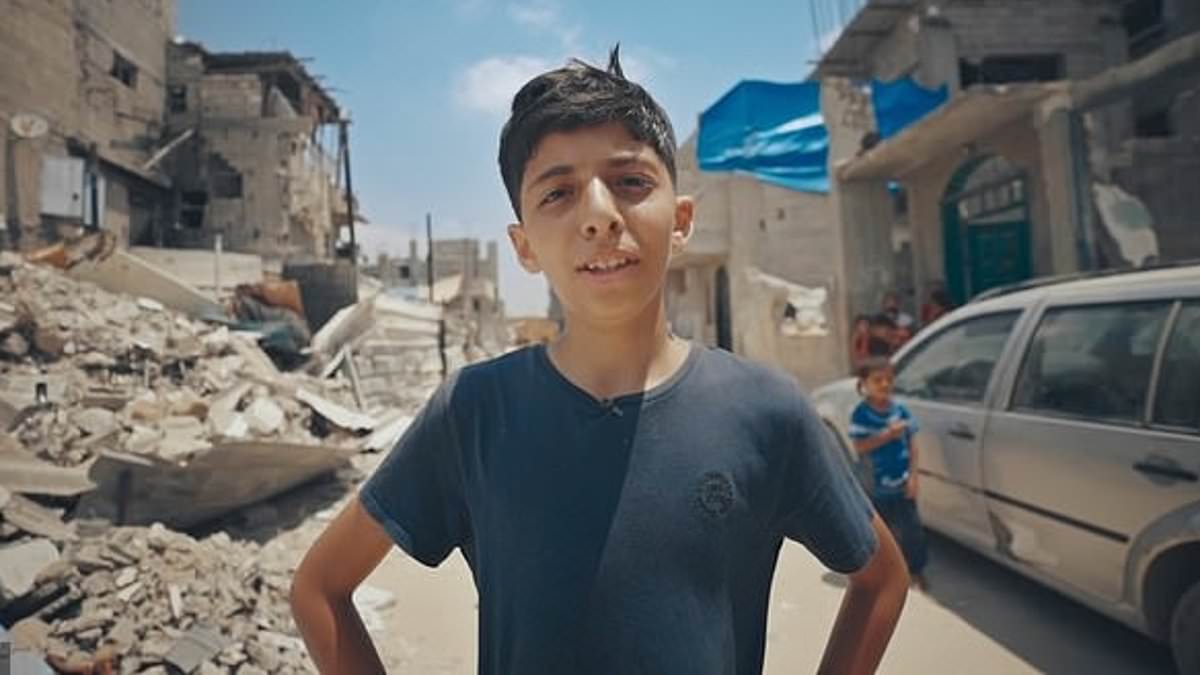What started as an effort to share a child’s view of war has now turned into a major controversy for the BBC.
A Gaza-based documentary meant to shed light on civilian survival during conflict has sparked serious questions—not just about its content, but about who was behind the voice telling the story.
The Documentary That Sparked the Storm
The film in question, Gaza: How to Survive a Warzone, was quietly removed from BBC iPlayer earlier this year.
At the center of the issue? A 13-year-old narrator named Abdullah—who turned out to be the son of Ayman Alyazouri, Hamas’s deputy minister of agriculture.
The detail wasn’t disclosed in the documentary, and that’s where the trouble began.
Ofcom Launches Official Investigation
On July 14, media watchdog Ofcom confirmed it will open a formal investigation.
The key issue: whether viewers were misled about the identity and connections of the narrator.
While the BBC has already admitted the programme breached one of its editorial guidelines—specifically around accuracy—Ofcom wants to know if it went a step further and materially misled the public, which would be a serious broadcasting violation.
What the BBC’s Internal Review Found
Peter Johnston, the BBC’s director of editorial complaints, led an internal review.
He found that while no one inside the BBC knew about the narrator’s father’s role at the time of broadcast, three staff members at Hoyo Films—the independent company that made the documentary—were aware.
Johnston was careful to note that Hoyo Films didn’t intentionally mislead the BBC, but he placed the bulk of the responsibility on the production company.
Still, the BBC wasn’t let off the hook entirely—Johnston said the broadcaster “bears some responsibility” too.
Director-General Issues Apology
BBC Director-General Tim Davie didn’t mince words, calling it “a significant failing” and promising changes.
The BBC, he said, would now be making changes in two key areas: holding people accountable and putting new safeguards in place to stop anything similar from happening again.
The internal review cost around £100,000 and found no other serious breaches like bias or external interference, but it did highlight the failure to share “critical information” about Abdullah’s father before the film aired.
Culture Secretary Wants Accountability
UK Culture Secretary Lisa Nandy wasn’t impressed.
She said she was “exasperated” by the whole situation and criticized the BBC leadership for not offering a better explanation—or consequences.
Speaking to The Times, Nandy said she asked the BBC Board why no one had been fired.
“If it is a sackable offence then obviously that should happen,” she said. “If it’s not, then parliament wants to know why not.”
Fallout for Other Projects
This documentary’s fallout had ripple effects. Another BBC film, Gaza: Doctors Under Attack, was put on hold and eventually dropped by the broadcaster.
That film, which looks at whether Israeli forces targeted hospitals in violation of international law, later aired on Channel 4.
Channel 4 stated they fact-checked the entire programme to meet their editorial standards, and ensured it complied with Ofcom’s code.
What Hoyo Films Had to Say
In a statement, Hoyo Films admitted they “take the report findings extremely seriously” and apologized for the mistake.
However, they emphasized there was no attempt to manipulate the content or allow external influences to shape the film.
They added that no funds were misused during production and that they hope to work with the BBC on potentially re-releasing the film, so the voices of those featured—particularly children affected by war—can still be heard.
The Bigger Picture
At the heart of the matter is a deeply sensitive topic: how to tell stories from war zones in a way that’s honest, transparent, and fair.
With Gaza: How to Survive a Warzone, what was meant to be a powerful and emotional documentary has instead become a case study in editorial oversight—and the fine line between storytelling and misinformation.
